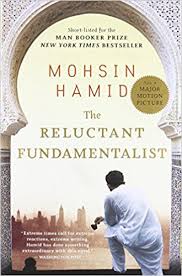
We think we know the bare bones of the history of the holocaust. Hitler as bogey man and the German nation following him to the abyss, where around six million Jews perished and many more minorities. That was my take on it. Not bad, around a D grade. But Snyder does more than root in the history of the past. He drags us into the present and the lessons are illuminating.
For the German nation the war was portrayed as necessary, a colonial war to maintain food supplies, a war against the inferior Slavic nations, or ‘shitty countries’ are our friend President Trump termed them. But when Lebensraum came unstuck at Leningrad and the Red Army began to roll back German colonial gains the genocidal war against Jews continued and grew even more intense.
‘The Auschwitz Paradox’ the complex of Treblinka, Belzac, Sobibor and Chelmno was a factory in which people were murdered for being the wrong type of people. The gas chambers also stood as a metonym for the evil of a racial policy of mass murder and genocide, but most of the killing had already taken place further East,
‘where tens of thousands of Germans shot millions of Jews over hundreds of death pits over the course of three years, most people knew what was happening. Hundreds of thousands of Germans witnessed the killings, and millions of Germans on the eastern front knew about them…German homes were enriched, millions of times over, by plunder from the murdered Jews, sent by post or brought back by soldiers and policemen on leave’.
Auschwitz processed a lie of left and right, separating the living and dead effectively, and more importantly it allowed a generation of Germans to say they didn’t know. It also allowed the Russians to act as liberators when earlier they had played a large part in the murder of Jews and other Slavic nationals.
The key to survival, then as now was citizenship. Jews in Denmark, for example, retained their citizenship and almost all survived. In contrast, all 963 Jew in Estonia were murdered, not by the Germans, but Estonian citizens. And from the Baltic to the Black Sea people who killed Jews killed others such as psychiatric patients and gypsies. Lithuanian policemen who took part in the killing of 150 000 Jews in 1941, also starved to death the same number of Soviet prisoners.
Similar elements are at work in the Syrian conflict. Putin’s genocidal onslaught in the second Chechnya war helped set the template for what was to follow. Russian troops that committed atrocities were fighting terrorism.
When Russian invaded Ukraine its citizens were deemed to be terrorists. Snyder draws explicit parallels with Hitler’s ideology:
In 2013 Russian leaders and propagandists imagined neighbouring Ukraine out of existence, or presented them as sub-Russians…an artificial entity with no history, culture, and language, backed by some global agglomeration of Jews, gays, Europeans, and Americans…In the Russian war against Ukraine, the first gains were the natural gas fields in the Black Sea…annexed in 2014…The fertile soil of mainland Ukraine, its black earth, makes it a very important exporter of food, which Russia is not.
Bashar al-Assad, Syrian’s dictator, whom Putin brought back from the brink of military defeat, using high-tech Russian jets, chemical weapons that put them outside the Geneva Convention, old-fashioned barrel bombs, artillery strikes on hospitals and schools while classifying these murders as fighting against terrorists. There is no such thing as non-combatants. Women and children are also terrorists.
Three million people in Idib. Three million non-citizens and terrorists. On the Turkish border civilian forces offer a sense of humanity and prepare for a million refugees. Perhaps an overestimate when the Russian fleet offshore are engaged in ‘exercises’. Non-citizens can expect no mercy in a kill-box that would have been all too familiar to Eastern European Jews. Ironically, those fleeing towards Israel in the hope that proximity to another nation state will provide a safe haven of sorts are simply classified as terrorist by another nation state.
Snyder’s template of taking away citizenship as the first step in genocidal murder applies equally to Myanmar’s Rakhine state. In scenes reminiscent of Nazi occupied Poland, on 27th August 2017 Myanmar’s army attacked unarmed civilians and forced more than 700 000 Rohingya to flee to neighbouring Bangladesh.
Ian Figel and Benedict Rogers in The Observer report thousands were killed, thousands of women raped. Children were snatched from their parents’ arms and thrown into their burning homes or drowned. Villagers lined up and shot.
Britain’s response to refugees mirrors that of the Americans during the Holocaust – no entry. The United States and richest nation in the world patted itself on the back for allowing around 5000 Jewish refugees, around the same number that were gassed in Treblinka in a morning’s work. Remember David Cameron talking about ‘swarms’ of them waiting to cross the English Channel. Swarms of children, who we agreed to take, then reneged on the deal. Without the sovereign protection of citizenship those without passports have no rights and can be disposed of.
With global warming the numbers of refugees Snyder argues is bound to increase exponentially and the poorest nations in the world will be hit first and hit hardest. Already we are preparing our defences. The first defence being rhetoric, them-or-us fundamentalism. The warning from history is a lesson we have learned too well. Enough talk produces hate and murder, but no real people die. Only terrorists. Believe that and you’ll believe anything. We often do and justify it to ourselves by saying we didn’t know. Read this book.






